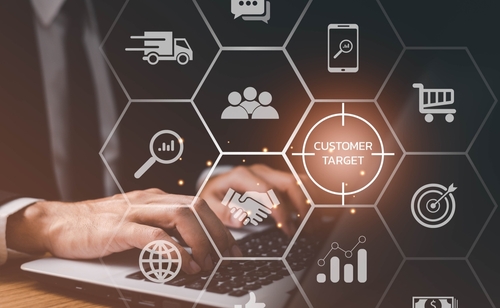Personalization has become a priority for businesses in recent years. Consumers have also begun to expect some form of tailored marketing. In fact, a recent study found that 72% of customers will only engage with personalized messaging. This is a huge imperative to steer away from more generalized marketing methods.
That said, personalized marketing for business-to-business (B2B) can feel quite tricky. Knowing to what extent personalization is relevant and how to apply it can be a constant learning experience. The B2B industry also has certain nuances that other sectors may not.
So, we’re going to take a moment to explore the power of personalization in B2B marketing strategies. What should you know and how can you best leverage this tool?
Understanding Your Clients’ Perspectives
Personalization is often associated with business-to-consumer (B2C) marketing. However, B2B clients also appreciate a more tailored approach. If you think about it, business leaders and their representatives don’t usually see their brands as faceless companies. Their success, their values, and their uniqueness genuinely matter to them.
This doesn’t mean that you necessarily take the same personalization approach you would with B2C campaigns. Your messaging needs to be relevant to your business targets. One efficient and effective approach is to obtain and analyze the Voice of the Customer (VoC).
VoC research enables you to spot gaps between the way you’re currently pitching to B2B customers and what they actually want and expect from your brand. You can then create materials more personalized to their goals and interests. It also shows that you’re paying close attention to what is important to your client base and is a powerful way to foster stronger relationships with them.
Boosting the Impact of Your Branding
B2B marketing personalization isn’t about forgoing your company’s core identity in favor of what the customer might respond to. Instead, think of it as finding ways to use your brand assets more intelligently so they have a greater personal impact on customers.
One of the elements you can personalize while maintaining your identity is the colors you use in your marketing. The field of color psychology asserts that different colors can affect how people feel and interpret information. For instance, greens are often associated with a sense of growth, while violet evokes imagination or creativity. You can strategically choose pops of color for your marketing materials that are personalized to what experiences different clients want from your brand.
Another aspect you can tailor to boost the impact of your branding is the language you use. It’s important to develop a consistent brand voice, as this can support the reliability of your company and cement the expectations of your clients. However, you can still adjust the language to resonate with their preferences.
Calls to action (CTAs) are a prime space to do this. You can create a range of different CTAs to appeal to different personas while still maintaining the tone of your brand. Link these to client accounts so the relevant messages pop up when they sign into your website or navigate toward product pages. You can also segment your email marketing list by personas and appropriately adjust the CTAs each client receives in their newsletter.
Utilizing Cutting-Edge Technology
Personalization of any kind can be quite labor-intensive. It requires regular data analysis of your consumer base, development of personas, and, of course, applying the tailored aspects in each marketing resource. Thankfully, the digital landscape continues to provide cutting-edge tools for you to boost your connections with B2B consumers.
First, consider data gathering and analytics platforms. One of the challenges of B2B marketing personalization is that your lead contacts for a company are not always going to be the same all the time. To some extent, using firmographic information can help you personalize your marketing towards the company. In either case, there’s a benefit to keeping an eye on the evolving preferences and behaviors of your clients.
You can use customer relationship management (CRM) software platforms to help. Look for platforms that track the actions of clients every time they interact with your website and marketing materials. The better quality data you have, the better you’re able to understand your clients. This empowers you to fine-tune the personalization in your marketing.
Automation plays an important role in personalized B2B marketing, too. It takes a lot of the labor out of applying personalized elements while also boosting customer experiences. For instance, you can create tailored chatbots. These bots are connected to a select amount of relevant customer data. This enables the bot to offer each consumer the most appropriate resources and even use personalized language or conversation styles. Not to mention that it reduces the time human customer services personnel spend answering questions.
Successful personalization in B2B marketing strategies is dependent on solid data and subtle techniques. The more you can learn about your clients, the greater ability you have to provide them with impactful materials. Remember, though, that your personalized marketing should also be balanced with the human touch. Alongside sophisticated marketing tools, occasionally reach out to your clients either by phone or by video message. This type of contact is likely to enhance how effective the personalized aspects of your campaigns are and demonstrate your genuine care for clients.





